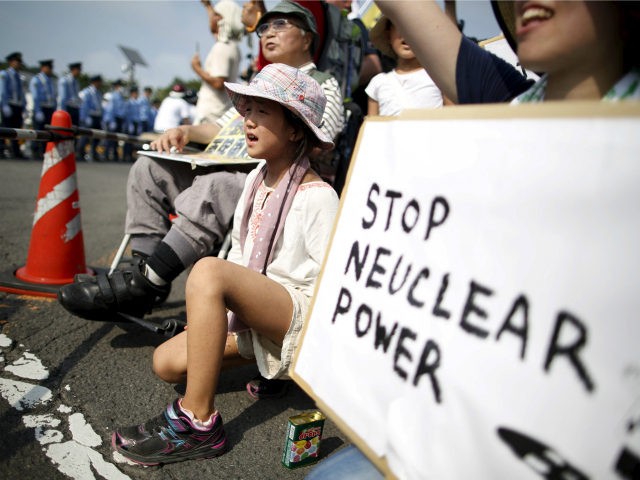Survivors of the U.S. atomic bomb attack on Hiroshima, Japan, say they would welcome an apology from American President Barack Obama for dropping the nukes, but they added that their priority is purging the globe of all nuclear weapons forever.
“Obama, who in 2009 was awarded the Nobel Peace Prize partly for making nuclear nonproliferation a centerpiece of his agenda, will on May 27 become the first incumbent U.S. president to visit Hiroshima, site of the world’s first atomic bombing on Aug. 6, 1945,” reports Reuters.
The U.S. nuked Nagasaki three days later.
“Obama’s visit to Hiroshima, after he attends a meeting of G7 leaders in Tokyo, was hotly debated in the White House, with concern it would be criticized in the United States if it was seen as an apology,” notes Reuters.
“Most Japanese feel the bombings of Hiroshima and Nagasaki were unjustified,” it adds. “Many in the United States say the bombings shortened the war and saved the lives of numerous U.S. servicemen.”
Apology or not, the Japanese people “widely” welcome Obama’s visit, reported the Associated Press (AP) earlier this month.
“Japanese are widely welcoming Obama’s decision to become the first sitting American president to visit Hiroshima, with few public demands for an apology,” noted the report. “Even those who want one realize that such a demand would have ruled out a U.S. presidential visit.”
Some conservatives believe the U.S. should never apologize for dropping atomic bombs on Japan.
“President Obama is off on another apology tour, this time to Hiroshima, Japan,” wrote Tom Tancredo, the former Republican congressman from Colorado, in an article published by Breitbart News. “If you think any apology to Japan is not only unnecessary but asinine, you belong to a very large club. It’s called Hell No!”
“To most Americans, this whole Obama apology scenario has it backwards. Japan should be thanking the United States for ending that war mercifully,” he added. “Japan surrendered six days after the second bomb was dropped.”
President Obama’s Secretary of State John Kerry already visited Hiroshima.
He described his visit as “gut-wrenching,” and after laying a wreath at the Atomic Bomb Museum, he declared it was “a stark, harsh, compelling reminder not only of our obligation to end the threat of nuclear weapons, but to re-dedicate all our effort to avoid war itself.”
“The Washington Post, which hilariously describes Barack Obama — the man who stuffed billions into the pockets of terrorist Iran and put them on a ten-year glide path to nuclear weapons — as a ‘non-proliferation crusader,’ says the president might visit Hiroshima himself before he leaves office,” reports Breitbart News’s John Hayward. “Kerry is the highest-ranking U.S. diplomat to visit the site; Obama would be the first president to do so.”
Some Japanese people have said an apology from the United States would be welcomed.
“We would definitely like an apology to people who lost their lives, those who lost loved ones, parents who lost their children,” Terumi Tanaka, a native of Nagasaki who was 13 when the bomb was dropped, told reporters on Thursday.
Tanaka, who was not harmed during that attack, but “vividly recalls searching the blackened city and piles of bodies for family members,” is the chief for Japan’s organization of bombing survivors.
However, he reportedly insisted that “a broad apology risked interfering with the ultimate goal of nuclear disarmament.”
“The bomb dropped on Hiroshima killed thousands of people instantly and about 140,000 by the end of the year,” notes Reuters. “About 27,000 people were killed instantly in Nagasaki and about 70,000 by the end of the year. Japan surrendered six days after the bombing of Nagasaki,” ending World War II.
President Obama is expected to visit Hiroshima with Japanese Prime Minister Shinzo Abe on May 27.
“Hiroshima governor Hidehiko Yuzaki said Obama’s visit was stirring a range of emotions in survivors but they were mostly putting hope for nuclear disarmament first,” reports Reuters.

COMMENTS
Please let us know if you're having issues with commenting.